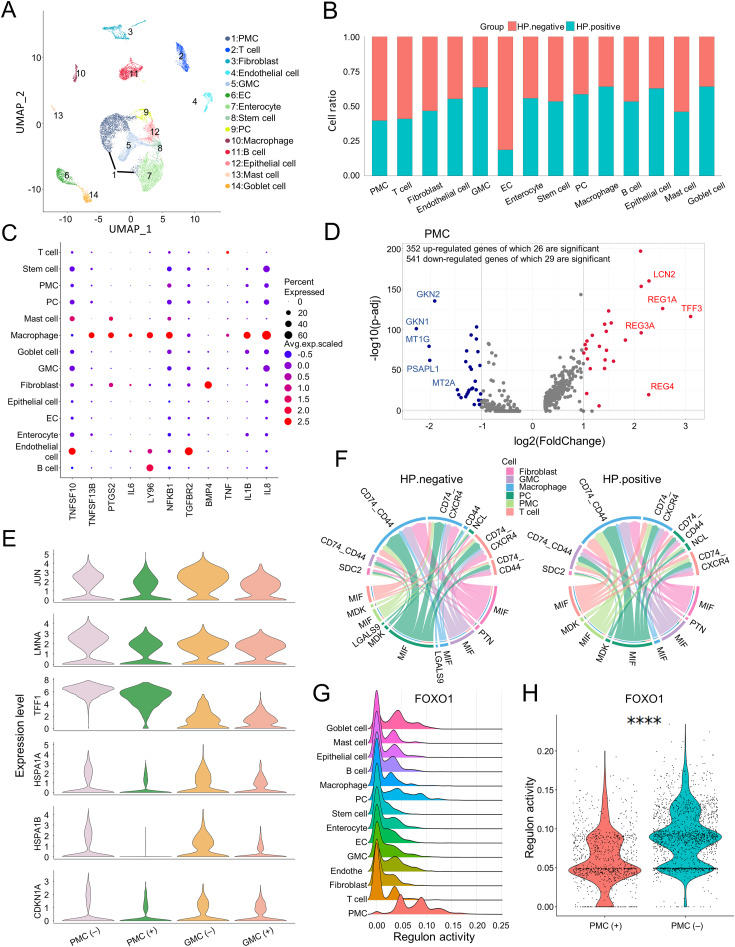
Helicobacter pylori mediated niche environment aberrations promote the progression of gastric cancer


Intestinal metaplasia (IM) is a key stage in the tumorigenic Correa cascade from gastritis to final intestinal-type gastric cancer (GC).1 Helicobacter pylori (H. pylori) infection is the most common trigger of IM, and it promotes GC progression through induction of gastric epithelial transition.2 Currently, the mechanism by which H. pylori infection promotes tumorigenesis in IM patients is poorly understood. Zhang et al. established a single-cell transcriptomic atlas on premalignant lesions and identified biomarkers of gastric early-malignant cells, providing an opportunity to explore the molecular mechanism of GC progression at the molecular level.3 However, the mechanism of how H. pylori causes environmental aberrations in IM is poorly understood. Here, we aimed to explore the aberrations of the cellular environment associated with tumorigenesis in IM with H. pylori infection using single-cell RNA sequencing (scRNA-seq) analysis. Notably, we found cell type-specific immune aberrations and cell-cell contact aberrations associated with carcinogenesis in IM with H. pylori infection. Ultimately, we identified a key transcription factor FOXO1 which may be functional in carcinogenesis, thus providing new insights into the carcinogenic role of H. pylori infection in IM.
